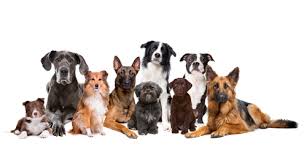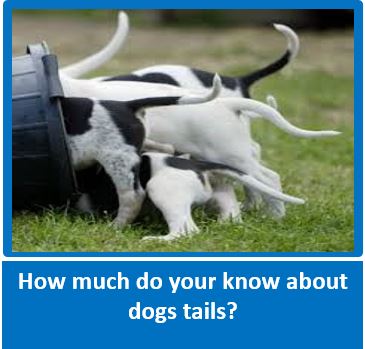
Please visit and LIKE our Facebook Page and share with family, friends and on your own Facebook page, and ask them to share further – it is only by working together and sharing knowledge and education that we can improve the lives of dogs and assist owners. We do not inundate you with posts – an average of 5 per week, and the odd Did You Know. Thank You!
Probing the Pedigree
Guest Writer - Gina Hartoog – Freelance Writer & photojournalist www.ginahartoog.co.za
___________________________________________________________________________________
From Friends of the Dog – There is a lot of confusion not only as to whether a dog has ‘papers’, but also to which association the papers are registered with. Many potential owners believe that as long as the dog has ‘papers’, they are safe with their purchase. In order to clarify this we have sourced this excellent article to give you more insight before making your purchase.
At the end of the day, the onus is on the potential owner to do their homework before buying a pup and not to make an ‘emotional’ decision. Impulse or ignorant purchasing can so often lead to heartbreak when genetic, physical and/or behaviour concerns arise. Remember that the adorable bundle of fluff you buy will be part of your family for many years to come, and we often put more thought into purchasing a car that will take us from A-B and sit in the garage, than when buying a pup that will be part of the family and interact with our children. I do not believe that this is intentional, rather that we have not been taught to investigate the breeding aspect further.
Although it may be more expensive, you are starting off with a clean slate where the breeding is concerned when purchasing from a professional, reputable breeder. Dr. Ian Dunbar, said “when buying a pup one should consider both nature and nurture”. By investigating the ‘nature’, you end up with the very best you can afford– the nurture is then up to the owner – puppy and continued socialization, bite inhibition, House Rules, training, etc. So please do make sure that you get the very best you can and your chances of having a healthy, well balanced dog who will be a happy and well adjusted part of your family will be greatly enhanced.)
At the end of the day, the onus is on the potential owner to do their homework before buying a pup and not to make an ‘emotional’ decision. Impulse or ignorant purchasing can so often lead to heartbreak when genetic, physical and/or behaviour concerns arise. Remember that the adorable bundle of fluff you buy will be part of your family for many years to come, and we often put more thought into purchasing a car that will take us from A-B and sit in the garage, than when buying a pup that will be part of the family and interact with our children. I do not believe that this is intentional, rather that we have not been taught to investigate the breeding aspect further.
Although it may be more expensive, you are starting off with a clean slate where the breeding is concerned when purchasing from a professional, reputable breeder. Dr. Ian Dunbar, said “when buying a pup one should consider both nature and nurture”. By investigating the ‘nature’, you end up with the very best you can afford– the nurture is then up to the owner – puppy and continued socialization, bite inhibition, House Rules, training, etc. So please do make sure that you get the very best you can and your chances of having a healthy, well balanced dog who will be a happy and well adjusted part of your family will be greatly enhanced.)

With the high price tag on puppies and ultimately the dog’s medical and physical care over many years, it’s best to give careful consideration before you buy a dog, particularly a pedigree dog. Allegations of unethical and even fraudulent breeding practices and sub-standard dogs being issued with ‘official’ registration papers are cause for great concern. The pedigree, a once respected document, is now regarded with suspicion by some. But what is it all about?
What is a pedigree?
In essence, the word ‘pedigree’, also called ‘registration papers’ or ‘papers’ for short, refers to a document that states the lineage of your dog. Your dog’s family tree or blood line is recorded on his pedigree. This is by no means a guarantee of good quality. It simply means that the dog’s records are on file and his dam and sire, going back three to five generations depending on the registry, are traceable.
In an ideal world, the dog’s pedigree is a tool to provide information on the animal’s health, temperament, genetic background and the risk of certain genetics diseases, because in theory you can trace his ancestors and their diseases. Reputable dog breeders use the dog’s lineage to carefully select the right mating partner for a dam, to ensure that only healthy puppies are bred.
In practice, sadly, unscrupulous breeders could not care less, and simply use the pedigree as a selling tool, or to increase the price they charge for puppies.
Registries
South Africa has a number of registries for dogs. However, the major cause for concern is registries who register puppies but do not uphold sound breeding principles, or expect their breeders to uphold these principles.
“These organisations appear to register dogs and puppies without any checks being carried out,” states Christine Kuch of the NSPCA. “There is no prescribed criteria relating to either welfare or breed standards.”
Even ‘puppy mill’ puppies can be ‘registered’ through some of these questionable registries.
Who can register a pup?
To register purebred puppies, a breeder must first register his or her kennel name with a reputable breed registry. Depending on the organisation, they may be asked to sign a code of ethics or recognized basic practices which they must adhere to. In most cases infringements are harshly dealt with and breeders can be expelled. Registries rely on the honesty of breeders when filling in paperwork for registrations.
Micro-chips and DNA tests
Certain dog breeds may be predisposed to specific genetic conditions. Some registries include results of specific tests on their registration papers. Some breeders feel this isn’t enough. “I believe that very soon we will have to look to micro-chipping and DNA testing as a means to provide concrete evidence of a dog’s bloodline and pedigree,” says Port Elizabeth based Doberman breeder Donne Lucas, “as well as proof that the dog entered at a show is the one being exhibited.”
Like Donne, other breeders believe that tests for breed specific genetic problems should be done before any dog is put into a breeding scheme. Greg Eva, CEO of the Kennel Union of Southern Africa (KUSA), says that as of 1 September 2010, micro-chipping will be mandatory for KUSA-registered dogs, and the registry strongly encourages the use of DNA tests.
Helen Lachenicht of Pretoria knows how devastating it can be to find out that a dog you love has a serious genetic disorder. “It was a blow to us to find out that our registered champion was deaf in one ear,” says Helen. “And then to be told later that our other dogs have PRA (Progressive Retinal Atrophy). It’s dreadful to think that in about two years, we will have four blind dogs. DNA testing should become mandatory to prevent affected lines being used in breeding programmes. All buyers should insist on seeing official test results before buying a puppy or adult dog from a breeder. Original paper work is the only proof buyers should accept.”
Breed registries in South Africa
The Kennel Union of Southern Africa (KUSA) is a registration and administrative organisation that promotes the responsible breeding and ownership of purebred dogs. The KUSA Accredited Breeder Scheme provides a framework that encourages the breeding of healthy and well adjusted puppies. A series of requirements are laid out for breeders to follow. Those purchasing puppies from breeders on the Scheme have the assurance that the basic good practices required by the Scheme have been followed. KUSA is working on and expanding the Scheme to further ensure that breeders adhere to the pledge they sign and breed with integrity with the purpose of improving the breed only. Breed standards for all registered breeds are available for download on the Kennel Union website. KUSA is a full federated member of Federation Cynologique Internationale (FCI) and has reciprocal agreements in place with several international kennel clubs. The South African Kennel Club, now called the Kennel Union of Southern Africa, was founded in 1891 through the combination of the Southern African Kennel Club of Port Elizabeth (founded 1883) and the South African Kennel Club of Cape Town (founded 1889). The Kennel Union represents the South African Dog world on the National Sports Commission and is recognized with the South African Stud Book Society. For more information: www.kusa.co.za
South African Canine Breed Registry (SACBR) is a dog registry that upholds all purebred pedigree dogs ancestral and progeny records. Registered breeders and kennels must sign and follow a Code of Ethics that outlines the required breeding practises to be adhered to by all members. If a dog does not conform to the breed standard, its membership and pedigrees will be cancelled. Before puppies can be registered with SACBR, both parents must be registered. If your dog is registered with another dog registry, you may still apply for single registration with SACBR and your dog keeps his current registry. For info: www.sabrc.co.za.
National Dog Breeders Council of South Africa (NDBC) is a multi-breed registry, with a majority of pit bulls on their system. Puppies can be registered with the Council if both parents have registration papers from any recognised breed registry. Proof of parents’ registration must be submitted before puppy registration. No open dogs or cross breeds are registered. To qualify for breeder and kennel registration, a minimum of four dogs and two litters per annum is required. A standard registration consists of three generations of linage. All dogs are given a unique ID number and pedigree certificates must contain the ID numbers of both parents. For more info: www.ndbc.co.za.
CanineSA is an ‘all breed’ registration body for thoroughbred dogs in Southern Africa, established in 2008. The organisation “strives to deliver a quality, respectable and affordable service that incorporates technology”, according to its website. In applying for accreditation, breeders are required to understand, confirm compliance and sign the Breeder's Code of Ethics prior to being accepted and accredited as a breeder. Breeders found in non-compliance to the Code of Ethics face cancellation of accreditation. Breeders are invited to register their Kennel names and current breeding dogs onto CanineSA records. The South African Jack Russell Registry has recently been incorporated into CanineSA. For more information: www.caninesa.co.za.
Breed-specific registries. A number of breeds, for instance German Shepherd Dogs, Boerboels and Boxers, among others, have registries that are specific to the breed, administered by breed societies. There are too many to mention here by name, but a simple Google search will put you in touch with your breed’s society.
SA Dog Breeders Association On several occasions during our investigation the South African Dog Breeders Association (SADBA) was mentioned. Says Cindy Foggit of Wolvereen Siberians Huskies: “I was contacted by a gentleman who claimed to have bought one of my huskies from a pet store. He asked my help in finding a mate for the dog as he wanted to breed with her. Alarm bells immediately went off as I don’t sell puppies for breeding purposes and definitely not in pet stores! I asked him to forward me the dog’s papers. The puppy was registered with the SADBA and the ‘pedigree’ contains very few details of the dog’s ancestors, sometimes only naming the dog by its first name. In other cases the details are labelled ‘open”. Cindy says that this is the second time she has come across a situation where her KUSA registered kennel name has been used in a questionable registration with the SADBA, with only a small change in the spelling of the word ‘Wolvereen’ to ‘Wolverine’ noted.
Wetnose Animal Rescue Centre iwas involved as a witness in criminal proceedings against a puppy mill whose dogs were registered with the SADBA. “There seem to be irregularities with regards to some registration papers and in some cases dogs advertised to be a certain breed, are in fact not,” says Tracy Forte. “We urge the public to do their homework before purchasing dogs that are registered at SADBA.” Maria van Lingen, president of the SADBA, declined to comment.
What is a pedigree?
In essence, the word ‘pedigree’, also called ‘registration papers’ or ‘papers’ for short, refers to a document that states the lineage of your dog. Your dog’s family tree or blood line is recorded on his pedigree. This is by no means a guarantee of good quality. It simply means that the dog’s records are on file and his dam and sire, going back three to five generations depending on the registry, are traceable.
In an ideal world, the dog’s pedigree is a tool to provide information on the animal’s health, temperament, genetic background and the risk of certain genetics diseases, because in theory you can trace his ancestors and their diseases. Reputable dog breeders use the dog’s lineage to carefully select the right mating partner for a dam, to ensure that only healthy puppies are bred.
In practice, sadly, unscrupulous breeders could not care less, and simply use the pedigree as a selling tool, or to increase the price they charge for puppies.
Registries
South Africa has a number of registries for dogs. However, the major cause for concern is registries who register puppies but do not uphold sound breeding principles, or expect their breeders to uphold these principles.
“These organisations appear to register dogs and puppies without any checks being carried out,” states Christine Kuch of the NSPCA. “There is no prescribed criteria relating to either welfare or breed standards.”
Even ‘puppy mill’ puppies can be ‘registered’ through some of these questionable registries.
Who can register a pup?
To register purebred puppies, a breeder must first register his or her kennel name with a reputable breed registry. Depending on the organisation, they may be asked to sign a code of ethics or recognized basic practices which they must adhere to. In most cases infringements are harshly dealt with and breeders can be expelled. Registries rely on the honesty of breeders when filling in paperwork for registrations.
Micro-chips and DNA tests
Certain dog breeds may be predisposed to specific genetic conditions. Some registries include results of specific tests on their registration papers. Some breeders feel this isn’t enough. “I believe that very soon we will have to look to micro-chipping and DNA testing as a means to provide concrete evidence of a dog’s bloodline and pedigree,” says Port Elizabeth based Doberman breeder Donne Lucas, “as well as proof that the dog entered at a show is the one being exhibited.”
Like Donne, other breeders believe that tests for breed specific genetic problems should be done before any dog is put into a breeding scheme. Greg Eva, CEO of the Kennel Union of Southern Africa (KUSA), says that as of 1 September 2010, micro-chipping will be mandatory for KUSA-registered dogs, and the registry strongly encourages the use of DNA tests.
Helen Lachenicht of Pretoria knows how devastating it can be to find out that a dog you love has a serious genetic disorder. “It was a blow to us to find out that our registered champion was deaf in one ear,” says Helen. “And then to be told later that our other dogs have PRA (Progressive Retinal Atrophy). It’s dreadful to think that in about two years, we will have four blind dogs. DNA testing should become mandatory to prevent affected lines being used in breeding programmes. All buyers should insist on seeing official test results before buying a puppy or adult dog from a breeder. Original paper work is the only proof buyers should accept.”
Breed registries in South Africa
The Kennel Union of Southern Africa (KUSA) is a registration and administrative organisation that promotes the responsible breeding and ownership of purebred dogs. The KUSA Accredited Breeder Scheme provides a framework that encourages the breeding of healthy and well adjusted puppies. A series of requirements are laid out for breeders to follow. Those purchasing puppies from breeders on the Scheme have the assurance that the basic good practices required by the Scheme have been followed. KUSA is working on and expanding the Scheme to further ensure that breeders adhere to the pledge they sign and breed with integrity with the purpose of improving the breed only. Breed standards for all registered breeds are available for download on the Kennel Union website. KUSA is a full federated member of Federation Cynologique Internationale (FCI) and has reciprocal agreements in place with several international kennel clubs. The South African Kennel Club, now called the Kennel Union of Southern Africa, was founded in 1891 through the combination of the Southern African Kennel Club of Port Elizabeth (founded 1883) and the South African Kennel Club of Cape Town (founded 1889). The Kennel Union represents the South African Dog world on the National Sports Commission and is recognized with the South African Stud Book Society. For more information: www.kusa.co.za
South African Canine Breed Registry (SACBR) is a dog registry that upholds all purebred pedigree dogs ancestral and progeny records. Registered breeders and kennels must sign and follow a Code of Ethics that outlines the required breeding practises to be adhered to by all members. If a dog does not conform to the breed standard, its membership and pedigrees will be cancelled. Before puppies can be registered with SACBR, both parents must be registered. If your dog is registered with another dog registry, you may still apply for single registration with SACBR and your dog keeps his current registry. For info: www.sabrc.co.za.
National Dog Breeders Council of South Africa (NDBC) is a multi-breed registry, with a majority of pit bulls on their system. Puppies can be registered with the Council if both parents have registration papers from any recognised breed registry. Proof of parents’ registration must be submitted before puppy registration. No open dogs or cross breeds are registered. To qualify for breeder and kennel registration, a minimum of four dogs and two litters per annum is required. A standard registration consists of three generations of linage. All dogs are given a unique ID number and pedigree certificates must contain the ID numbers of both parents. For more info: www.ndbc.co.za.
CanineSA is an ‘all breed’ registration body for thoroughbred dogs in Southern Africa, established in 2008. The organisation “strives to deliver a quality, respectable and affordable service that incorporates technology”, according to its website. In applying for accreditation, breeders are required to understand, confirm compliance and sign the Breeder's Code of Ethics prior to being accepted and accredited as a breeder. Breeders found in non-compliance to the Code of Ethics face cancellation of accreditation. Breeders are invited to register their Kennel names and current breeding dogs onto CanineSA records. The South African Jack Russell Registry has recently been incorporated into CanineSA. For more information: www.caninesa.co.za.
Breed-specific registries. A number of breeds, for instance German Shepherd Dogs, Boerboels and Boxers, among others, have registries that are specific to the breed, administered by breed societies. There are too many to mention here by name, but a simple Google search will put you in touch with your breed’s society.
SA Dog Breeders Association On several occasions during our investigation the South African Dog Breeders Association (SADBA) was mentioned. Says Cindy Foggit of Wolvereen Siberians Huskies: “I was contacted by a gentleman who claimed to have bought one of my huskies from a pet store. He asked my help in finding a mate for the dog as he wanted to breed with her. Alarm bells immediately went off as I don’t sell puppies for breeding purposes and definitely not in pet stores! I asked him to forward me the dog’s papers. The puppy was registered with the SADBA and the ‘pedigree’ contains very few details of the dog’s ancestors, sometimes only naming the dog by its first name. In other cases the details are labelled ‘open”. Cindy says that this is the second time she has come across a situation where her KUSA registered kennel name has been used in a questionable registration with the SADBA, with only a small change in the spelling of the word ‘Wolvereen’ to ‘Wolverine’ noted.
Wetnose Animal Rescue Centre iwas involved as a witness in criminal proceedings against a puppy mill whose dogs were registered with the SADBA. “There seem to be irregularities with regards to some registration papers and in some cases dogs advertised to be a certain breed, are in fact not,” says Tracy Forte. “We urge the public to do their homework before purchasing dogs that are registered at SADBA.” Maria van Lingen, president of the SADBA, declined to comment.




